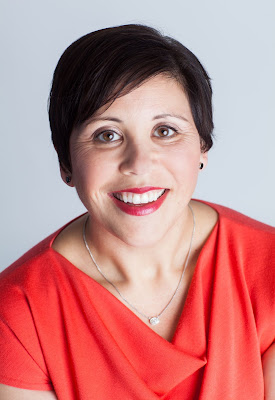When I first envisioned doing this blog, I was thinking that most of us have a limited voice. We have valuable life experiences, as we deal with a disability...and we have a lot of positive things that we can share. Life lessons that we have learned, or picked up along the way...that would be beneficial in someone's life that has a struggle similar to our own.
This will be the fourth entry in this blog series on introducing people in the Ataxia Community. And even though I have just started on this particular journey...I am proud of each entry so far because of the people each article has represented. They have been incredible lives...and today's entry is no different. I am honored to present to you, Linda Snider.
In nineteen-ninety-four at the age of twenty-one, Linda learned that she had Spinecerebellar Ataxia type 1. She was the second person to be tested genetically for Ataxia. Linda had a fifty-percent chance of having a hereditary Ataxia because she grew up within the reality of having a father who also struggled with the Neurological Disease/Condition. Linda's diagnosis was labeled as SCA1....the "1" designation was because it was the first Ataxia gene to be discovered.
The rest of what Linda has to say to us I am going to let her put in her own words. Before I do that though...I want to bring out something I learned about Linda in my email interactions with her that I think is very significant.
When Linda was first disgnosed she was told that she would be in a wheelchair by the age of forty. Hear me on this: A wheelchair is not the focus here...and I am not implying a wheelchair is the end of a meaningful life! It is quite the opposite. A chair has absolutely NO reflection on the individual or the joy they can find in life. But the point I want to address is that when many of us first receive a diagnosis, (myself included), we are also told some medical predictions about what the future holds for us. Many lives are shattered by these bits of information...as now we find ourselves processing a rare disease AND the reality of a life spent in varying states of disability. What many of us come to realize later...sometiomes years down the road...is that these "truths" about our lives were no more than predictions that were based on statistics. Many of the symptoms can be slowed down by a positive outlook and attitude, consistent exercise, or diet...just to mention a few.
Anyway...that's enough from the peanut-gallery....let's hear more from Linda:
I was
diagnosed the summer between college and medical school so I was a student. I
finished medical school and am currently a physician specializing in Radiology.
Hobbies haven't changed much although I have to do them differently. I love to
dance, scuba dive, and ride my bike but now I rely on a partner to keep me
balanced dancing, use a boat specially designed for wheelchairs and
disabilities to dive and use a recumbent tricycle to ride.
Staying active and doing anything you love is helpful not only physically keeping up motor skills but also it's relaxing and increases your sense of purpose and humanity. Knitting, reading, and coloring are good for hand-eye coordination and you aren't being judged on the quality of the work so who cares if it's not perfect.
Having ataxia has taught me that so many people will come together to support you in your daily struggle. I love the support and encouragement of others and feel their love in everything I do. I have learned that I am tougher and stronger than I knew. I'm a fighter and I don't give up easily. I see everything as an obstacle to be overcome. I'm positive and upbeat naturally and have the ability to help others see their situation from a different perspective so they too have a slightly easier time. It's all about perspective. No matter how badly you think your life is, there's someone else out there dealing with worse. I was born with all my limbs and at one time they functioned fine. Now, that's slowly disappearing but there are people that have had ataxia since the age of 2 or were born without arms and legs.
I help raise ataxia awareness by running a local support group. I'm involved with the annual ataxia conference and try to educate the Nebraska and Iowa region about ataxia. I've met with our local neurologists and go to other support groups in the area to help with their fundraising efforts.
My piece of advice. Although I may struggle, I will never give up. This is a battle and although everyone has a battle to fight, Ataxi is mine and I use the support and love of the people around me to rally.
Thank you, Linda. Again, it was an honor to provide a place for your story. One more place that you can access Linda's story is on YouTube. I will provide the link to that video...and I highly recommend that you watch it if you have not viewed it before. It is very informative about her life with Ataxia...but also about others in her Support Group.
https://www.youtube.com/watch?v=8qlqFQOrb_4&t=40s
Until next time....
Thank you, Linda. Again, it was an honor to provide a place for your story. One more place that you can access Linda's story is on YouTube. I will provide the link to that video...and I highly recommend that you watch it if you have not viewed it before. It is very informative about her life with Ataxia...but also about others in her Support Group.
https://www.youtube.com/watch?v=8qlqFQOrb_4&t=40s
Until next time....


No comments:
Post a Comment